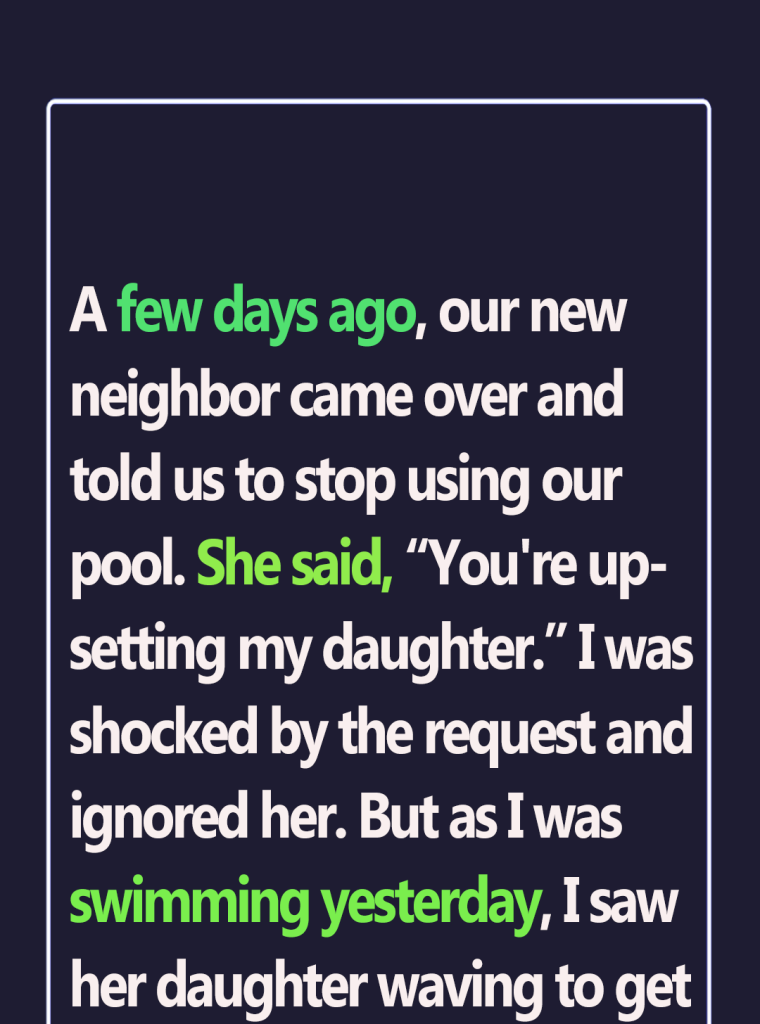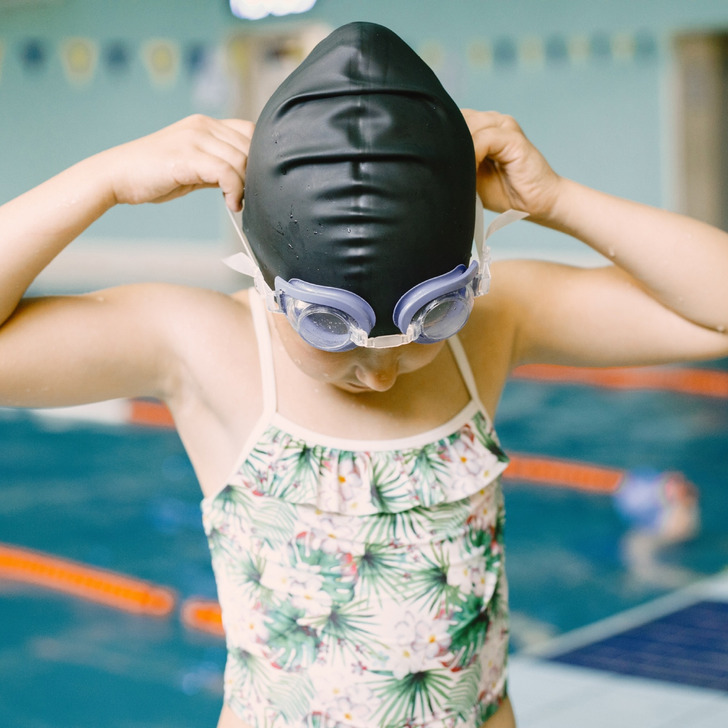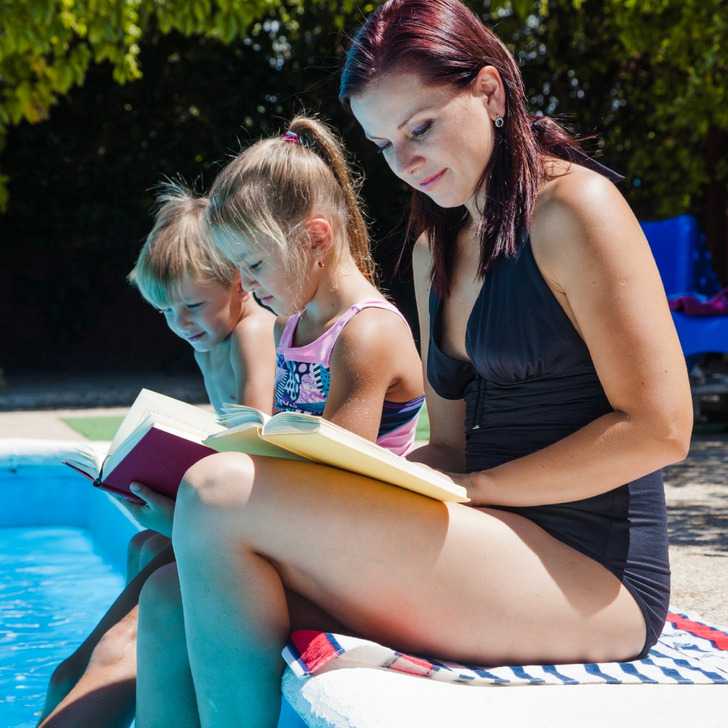
Maintaining peace with your neighbors is a balancing act that revolves around mutual respect. If everyone is on the same page, it could lead to long-lasting friendships. If not, it can be a disaster. One of our readers learned a valuable lesson when her neighbor complained about her fun in the pool.
One of our readers, Kim, reached out.

Dear Bright Side,
Our new neighbors were nice at first. They came over, introduced themselves and their 9-year-old daughter, and even brought us some baked goods. But that quickly changed when we started using our pool again.
A few days ago, the mom came over and angrily told us, “Stop using your pool. You’re upsetting my daughter.” I was shocked by her request and after discussing it, my husband and I decided to ignore her. It was our house, and we could do whatever we wanted, after all.
But as we were swimming yesterday, I saw her daughter watching us from a distance. She started waving to get my attention. Then I saw that she was holding something. She pointed at the object and had a very sad look on her face, so I motioned for her to come over.
She happily did so and sat at the edge of the pool with her feet in the water. Then she told me something that broke my heart. Two years before they moved in next to us, they had a pool. Her little brother fell in, and unfortunately, he didn’t make it. She was holding a picture of him.

Rationally , you would think she would want her daughter to learn how to swim and be safe around the water , but she’s worried it’s gonna happen again. The daughter isn’t the one upset about the use of the pool.It’s the mother. I can’t imagine what that family went through and is still going through. I might just.
Go over there, hug the mom. Tell her how sorry you are. Leave it at that and then maybe in a few more days. Contact her again and just tell her you know, you’d love to help her daughter be safe around the water and invite the mom too, and maybe they’ll come by and start out very small steps. I think it would be good for the mom to be involved in this to teach her daughter.Maybe that would help her feel more in control and help face her fear. i’m sure the whole family needs counseling if they’re not already , and is another issue altogether , but at least tthe daughter needs to learn how to swim , it’s very important now and in her adult life too. You seem like a wonderful compassionate person, I hope it works out
She said that she had never learnt to swim and after the incident, her mother doesn’t allow her to go near any pool. Before we could get into any details, her mom came out and saw her with her feet in the pool. She was furious.
She told her daughter to get into the house and turned her attention to us. But before she could start arguing, I said, “I’m a preschool swim instructor. I could teach your daughter everything she needs to know to be safe in and near pools.”
The mother went pale as a sheet and left. We haven’t seen or heard from her or her daughter since. I feel bad for the kid. She obviously likes water and wants to learn how to swim. But her mother’s fears are holding her back.
So Bright Side, what do I do now? Do I approach the mom again and share my credentials and success stories? Or do I just leave them alone?
Regards,
Kim J.
Thanks for reaching out to us, Kim. We understand how difficult this situation must be, especially since you don’t know where you stand right now. So we’ve put together a few tips that might be helpful.
Lead with empathy, not expertise.

Instead of approaching the mother with your qualifications right away, try opening the conversation from an emotional place. For example, you could say something like, “I can only imagine how scary that must have been for you. I’m so sorry for what your family went through.” People who’ve experienced trauma around water often respond better to compassion before logic. Once she feels understood, you might gently mention that your goal isn’t to push swimming. It’s to help her daughter feel safe around water again, at her own pace.
Offer a bridge, not a lesson.

Rather than offering formal lessons immediately, suggest small, low-pressure steps like letting the girl watch you teach another child or just sit by the pool while you demonstrate safety basics. You could even invite the mother to observe from a distance. This shifts the focus from “swimming lessons” to “healing and safety,” which may feel less threatening for her.
Respect her boundary, but stay open.

Try reachingout like you said maybe she will ease up and let her daughter learn to swim and maybe you might make a friend that needs someone to understand her fears.
You did the right thing by showing kindness and offering help. Now, the best move may be to give her space. Trauma responses often soften over time, especially when people see consistent, gentle behavior from others. Keep being a friendly, calm neighbor. If the mother ever reaches out, even casually, you’ll have built the trust she needs to reconsider her fears.
Kim is in a difficult situation. She had the ability to help, but she can’t move forward without the mom’s knowledge or consent. But she isn’t the only one with neighbor struggles.

